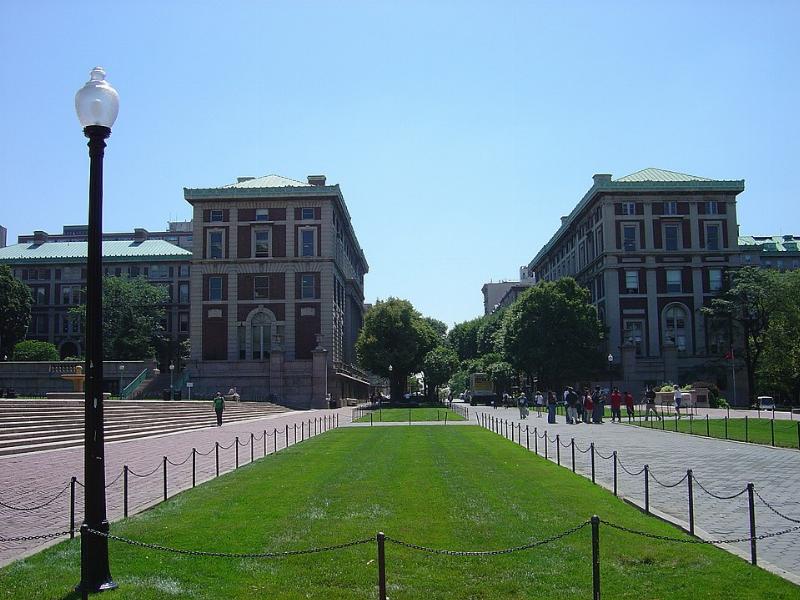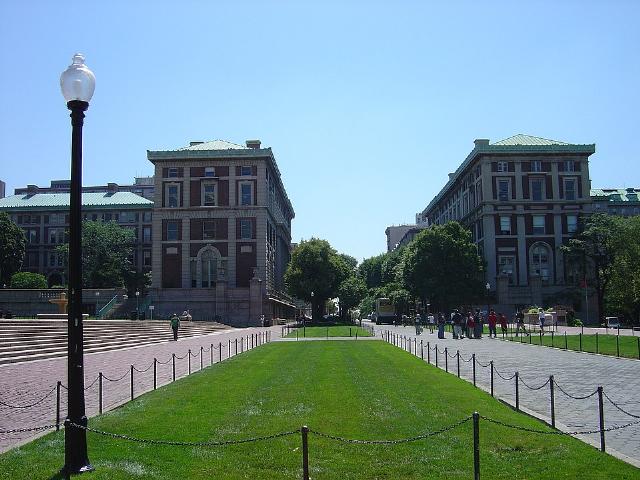


The controversy regarding antisemitism at Columbia University seems to have taken on a life of its own. Although people are well aware of the pro-Palestinian protestors and attacks on Jewish students, as well as the campus encampments, fewer people may know about the Columbia professor who stood up for Jewish students and was banned from campus:
Shai Davidai, an Israeli assistant professor at Columbia University’s business school and outspoken pro-Israel activist, said he has been barred from the school’s campus again.
In a video posted to Instagram on Tuesday, Davidai said his lawyer had been informed that Davidai was barred from campus after he posted videos of himself confronting university officials about anti-Israel protests on Oct. 7, the one-year anniversary of Hamas’ attack.
Columbia accused Davidai of threatening Columbia employees through harassment and intimidation:
‘Columbia, however, does not tolerate threats of intimidation, harassment, or other threatening behavior by its employees. Because Assistant Professor Davidai repeatedly harassed and intimidated University employees in violation of University policy, we have temporarily limited his access to campus while he undertakes appropriate training on our policies governing the behavior of our employees,’ the statement said.
The statement is telling, since it accuses him of “threats,” but does not describe the actual behaviors that were allegedly harassing or intimidating. Whether Davidai ever had to attend the “training” they reference is unclear.
The university took over a year to act on their accusations and, when it finally did so, it essentially found Davidai innocent of the claimed misbehavior. Once the ruling came in, Davidai resigned from Columbia Business School:
The investigation began on February 8, 2024, after allegations were made about the Israeli professor. Columbia then suspended him temporarily after claiming he had ‘repeatedly harassed and intimidated university employees in violation of university policy.’
The letter shows that the OIE had closed the probe on July 8, ‘without any findings or conclusions of wrongdoing and without imposing discipline or penalty.’
Was Davidai guilty of anything, or was the administration scapegoating him as an example of unacceptable protesting?
Davidai became known as a vocal supporter of Jewish students on campus and an outspoken Zionist following Hamas’s October 7, 2023, attack on Israel.
He gave a viral speech about antisemitism on campus shortly after the massacre and has often clashed with Columbia administrators, demanding that they take action against student activists and faculty who, he says, have created a hostile and threatening atmosphere for Jewish and Israeli students.
Now that Davidai has left, antisemitic issues should lessen, right? No. Not at all.
The issue of anti-Semitism has still not been resolved, even though Columbia claims it is working with the federal government:
A member of the Columbia University Board of Trustees is calling on the school to comply with the Trump administration's demands regarding alleged antisemitism on campus and Title VI of the Civil Rights Act.
In a letter delivered Monday and obtained by CBS News, Dr. Shoshana Shendelman also demanded a formal apology from acting school President Claire Shipman and board co-chairs David Greenwald and Jeh Johnson.
‘The conduct which has been exhibited by Columbia leadership in recent months — particularly the failure to decisively address antisemitism on campus — demonstrates a disturbing lack of moral clarity and poses a significant threat to the safety and well-being of Jewish students, faculty, and the broader community of Columbia University,’ Shendelman wrote.
[snip]
‘Columbia must fully accept the Trump administration's demands regarding antisemitism and Title VI compliance,’ the letter continued. ‘It is the right thing to do for our students, and it is undeniable that the current situation at Columbia is untenable. Thus, our Board must work promptly and unconditionally with the United States Federal government.’
Jews need to engage in passionate protests, which are long overdue. In reviewing these protests from Dr. Shoshana Shendelman and Assistant Professor Shai Davidai, we must wonder whether Columbia has learned anything from the penalties and criticisms they have endured.
I think not.

